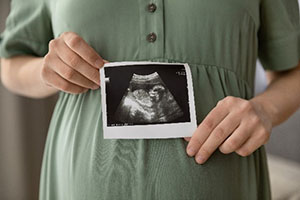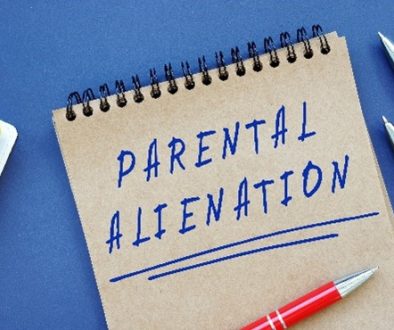Will the US Remain the Wild West of Surrogacy?
 The medical feasibility of surrogacy and other assisted reproduction technologies has pushed legislatures and judges across the country to grapple with some of the thorniest and most emotionally charged issues imaginable. Each state has come to its own conclusions: from what constitutes parenthood to who is entitled to claim it, earning the U.S. the moniker of “the Wild West”. What is legal in California is criminal in Michigan. What Is allowed by a judge in one county may be denied by a judge in the next.
The medical feasibility of surrogacy and other assisted reproduction technologies has pushed legislatures and judges across the country to grapple with some of the thorniest and most emotionally charged issues imaginable. Each state has come to its own conclusions: from what constitutes parenthood to who is entitled to claim it, earning the U.S. the moniker of “the Wild West”. What is legal in California is criminal in Michigan. What Is allowed by a judge in one county may be denied by a judge in the next.
In the United States, the first child carried by a surrogate biologically unrelated to the baby was born in 1985. Since then, surrogacy has amassed an amazingly robust legal history. Not only do states not agree on the legality of surrogacy, but they also come to different conclusions as to what criteria should be applied when disputes arise.
The first contentious surrogacy case, one that is still influencing law in the U.S., was the case of Baby M. This case involved full (and financially compensated) surrogacy. Mary Beth Whitehead agreed to be impregnated and carry to term a child conceived with from her egg and the sperm of William Stern, the intended father. When the child was born Whitehead initially turned the child over to the intended parents, but then begged to be able to have the child for a day or two. She led the intended parents to believe she might attempt suicide if her request was denied. When the Sterns agreed to let Whitehead temporarily take the baby, she absconded with the child and hid for four agonizing months. The county watched the twists and turns of this saga on TV and many states subsequently banned all forms of surrogacy to avoid similar situations. Most have relented, at least partially. So-called “surrogate friendly” states have explicitly allowed surrogacy, others have tried to stay out of the fray by not enacting laws for or against, leaving their constituents to the personal inclinations of the judge they draw. Only one state, Michigan, remains stoically opposed to all forms of surrogacy.
The (non) case of Jordan of Tammy Myers might just end up being what finally pushes Michigan to update its laws on surrogacy.
It would be hard to find a case that evoked more sympathy and less controversy: The Myers, parents of an 8-year-old, were trying to conceive again when Tammy was diagnosed with an aggressive breast cancer. Facing chemotherapy and a likely reduction in fertility, Tammy harvested her eggs. Then she underwent 18 rounds of chemotherapy, 28 rounds of radiation, and 25 surgeries. Throughout, Tammy blogged about her experiences, including her hopes to have another child. Rather miraculously, Lauren Vermilye volunteered to be a gestational surrogate for the Myers.
Michigan is the least surrogate-friendly state in the nation. It holds all surrogacy contracts unenforceable and any that include compensation to the surrogate actually criminal. But the Myers case did not involve enforcing a contested contract (all parties remained in agreement), nor was compensation involved. Despite Michigan’s laws, many Michigan judges are granting pre-birth orders to couples provided:
- both intended parents are married
- the intended parents and the gestational carrier agree on legal rights
- the intended parents and the surrogate are represented by independent counsel, and
- there is a genetic link between the intended parents and the baby.
The Myers were hoping to obtain a pre-birth order in which they would be declared the legal parents of their twins under the compassionate surrogacy case. In December, a judge dismissed their petition to obtain maternal and paternal rights to the babies and denied their request for a hearing. The couple then tried to have Jordan declared their legal father (usually a more easily obtained right) under the paternity act of 1956. Their petition was again denied, again, without a hearing. The Myers children were born on January 11th, 2021. Their birth certificates list the surrogate and her husband as the parents. So, the Myers will be adopting their children, who are not currently covered by their medical insurance (the twins were born 8 weeks premature, so this is a non-negligible issue). The Myers will have to go through all the procedures of adoption including home visits from a social worker. They have even been told they should count themselves “lucky to get the chance to adopt the babies given that not all couples are chosen for adoption”.
The Myers case has brought renewed pressure on the Michigan legislature but the fact that Michigan may soon update its law won’t change a great deal. With no federal statute, states still need to decide what constitutes parenthood and who is entitled to participate in it via technologically based methods.
Determining who is legally a child’s parent is a first critical step since it eliminates (or enables) the possibility of a surrogate invoking constitutionally protected rights to privacy or claiming the surrogacy contract violates adoption law or laws regarding termination of parental rights: if the surrogate is not deemed to be a parent to the child, these legal arguments are legally moot.
Over the years states have used different, often conflicting criteria for determining parentage. In the Law of Surrogacy Motherhood in the United States, Carla Spivack clarifies the various methods states have used in their attempts:
Parenthood by Intent: A California case involved a surrogate not biologically related to the child who filed a petition to be declared the child’s mother. The Supreme Court of California determined “she who intended to bring about the birth of a child to raise as her own is the natural mother under California law” Johnson v Calvert (5 Cal. 4th 84 (1993) at 500
Parenthood by Contract: A Minnesota Court of Appeals applied traditional contract analysis to a surrogacy contract which the surrogate claimed, after childbirth, was invalid. Critical to the court’s analysis were findings that
- the parties had entered into a valid agreement that reflected the intentions of the parties
- that the parties had not been coerced
- that the contract did not contravene state public policy (Minnesota had no laws either sanctioning or prohibiting surrogacy agreement.
The case was decided in favor of the intended parents P.G.M. v J.M.A. WL40 4448 Minn.App)
Parenthood by Genes: Some states have opted to enforce surrogacy contracts based on the genetic ties to the child. Under Ohio law “the individuals who provide the genes of that child are the natural parents” (J.F. v. D.B., 116 Ohio St.3d 363, 2007-Ohio-6750.).
Parenthood by Gestation: This is the default position. When no law governs surrogacy, if a child is born to a surrogate, the surrogate is considered the mother of the child. Her gestational relationship thus trumps any biological or contractual relationship with the intended parents. This is still the prevailing position in Michigan.
Best Interests of the Child: In most family law disputes the doctrine of “the best interests of the child” is sacrosanct. In surrogacy cases, however, courts have been reluctant to invoke it since it would entail comingling the concepts of parentage and custody. Courts in California and Pennsylvania have nevertheless invoked the doctrine –using it to justify a decision in favor of the intended parents (in California) and of the surrogate (in Pennsylvania).
Declaratory Actions to Establish Parenthood: Pre-birth parentage orders are being used more and more. When pre-birth orders are unopposed, courts generally look favorably on them. But in states where parentage is not conferred by genetics, pre-birth orders may conflict with the states’ adoption laws.
Twice, esteemed associations of top lawyers (the National Conference of Commissioners on Uniform State Laws in 1988, and the ABA in 2008) have tried to sort out a statute that could be adopted by all states. Neither group was able to coalesce around a single recommendation; each proposed 2 alternatives. Despite that flexibility, neither group’s proposals have met with much success.
It looks like the U.S. will continue being known as the Wild West for the foreseeable future.


